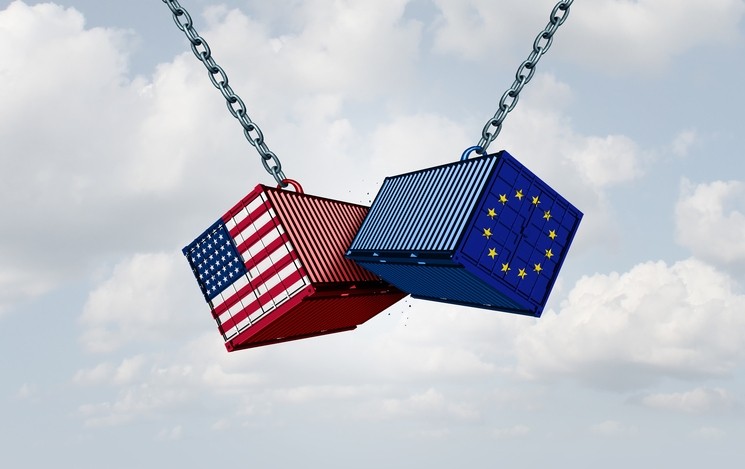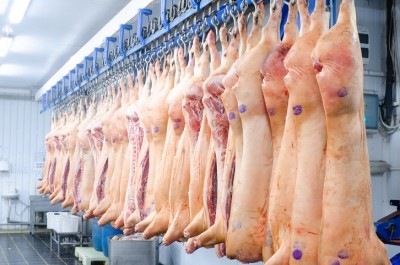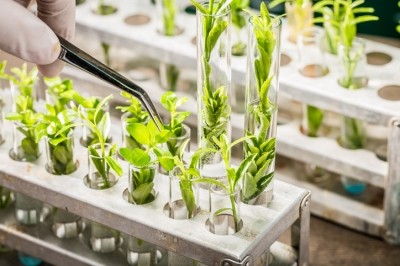'Tackling non-tariff barriers is key for increased EU-US soy trade'

The EU compound feed and premix manufacturer representative body said confronting the issue of non-tariff barriers is critical for increased EU-US soy trade.
US President, Donald Trump, and head of the European Commission, Jean-Claude Juncker, announced a ‘new phase’ in EU-US relations, after more than two hours of talks at the White House yesterday [July 25].
Non-tariff barriers (NTBs), according to the US government, can decrease market opportunities for US exports and provide unfair competitive advantages to EU products. “These barriers take the form of restrictive licensing, permitting, and other requirements applied at the border, but also barriers behind the border, such as unwarranted technical barriers to trade and sanitary and phytosanitary measures.”
Source: Office of the US Trade Representative
“We agreed today, first of all, to work together toward zero tariffs, zero non-tariff barriers, and zero subsidies on non-auto industrial goods. We will also work to reduce barriers and increase trade in services, chemicals, pharmaceuticals, medical products, as well as soybeans.”
They said they also want to resolve the steel and aluminum levy issues and retaliatory tariffs.
So the EU is set to buy more soybeans from the US, and in order to diversity its energy supply, Juncker said the EU-27 would procure more liquefied natural gas from the US; meanwhile, Trump removed his threat to impose punitive tariffs on European cars.
The US and EU advisors will also collaborate to protect American and European companies better from unfair global trade practices, according to the joint statement. “We will therefore work closely together with like-minded partners to reform the WTO and to address unfair trading practices, including intellectual property theft, forced technology transfer, industrial subsidies, distortions created by state owned enterprises, and overcapacity.”
‘Benefits for EU-US agri-food trade’
Elaborating, FEFAC said such a “pragmatic approach” will benefit EU-US agri-food trade and, in particular, imports of US soy and other feed grains, which have moved to a historic all-time low mainly due to EU’s non-tariff barriers.
The European feed industry will continue to rely on imported plant proteins for many years to support a competitive and sustainable livestock industry, said Nick Major, FEFAC president.
And, citing the persistent drought in larger parts of Northern and Central Europe, he said it was possible that the EU will be required to boost imports of soy and feed grain by-products such as corn gluten feed and dried distillers grains (DDGs) to maintain its livestock population in the current marketing year.
First Trump trade win! EU has agreed to lower industrial tariffs, aligning standards on medical products & import more US soybeans as much as 3 MMT in order to avoid a 25% auto tariff! US could turn out to be top EU soybean supplier! Source: EU Commission & Bloomberg pic.twitter.com/0RPa01Yia3
— Risk Management (@FarmsMarketing) 25 July 2018
EU plant breeding ruling
However, Major expressed concerns about the ruling yesterday by the European Court of Justice on mutagenesis techniques, saying the opinion could prove to be a non-tariff trade barrier, and will not help the EU protein deficit either.
According to Major, classifying new mutagenesis breeding techniques under the scope of the EU GMO Directive could potentially lead to unintended consequences by effectively blocking EU market access to imports of US soy and other feed grains.
He told FeedNavigator: “If exporting countries choose to regulate modern plant biotechnology according to conventional seeds legislation, importers of those agriculture products would not have any means to account for their traceability if they are considered GMOs once they reach the EU. The risk of running into a non-compliance [issue] could be a deterring factor for imports.”
He added that there could be ramifications for the EU protein plan and its goal of reducing the EU protein deficit arising out of the ECJ ruling.








